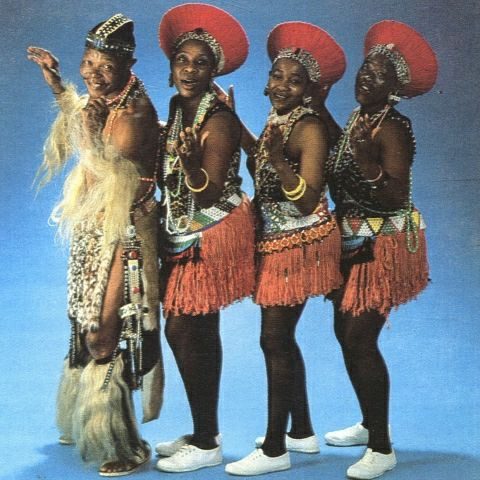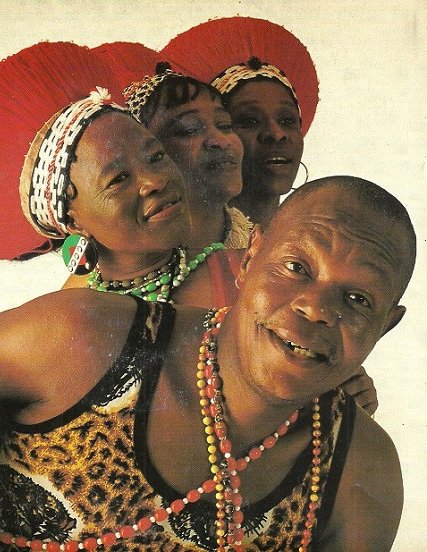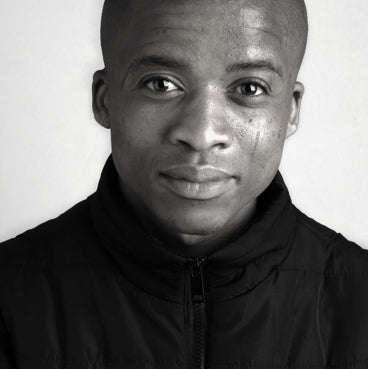Mahlathini
Mahlathini

Simon "Mahlathini" Nkabinde, born in either 1937 or 1938 and passing away on 27 July 1999, was a prominent South African mbaqanga singer celebrated as the "Lion of Soweto." He became renowned for his deep-voiced, basso profundo "groaning" style, which became emblematic of mbaqanga music during the 1960s.
Nkabinde was highly active as a live performer in South Africa, collaborating with the Mahotella Queens and the accompanying Makgona Tsohle Band from 1964 to 1971. After a hiatus, he rejoined the group from 1983 until his passing in 1999. The collaboration with the Mahlathini and the Mahotella Queens gained global recognition following the release of Paul Simon's 1986 album "Graceland."
Mahlathini's distinct vocal style and powerful stage presence contributed significantly to the popularity and international success of mbaqanga music. His contributions to South African music and culture endure as part of his lasting legacy.
Simon "Mahlathini" Nkabinde was born in Newcastle, KwaZulu-Natal, and raised in Alexandra, Gauteng. From a young age, he took an interest in leading isicathamiya and mbube choirs at traditional Zulu wedding ceremonies. Even as a teenager, Nkabinde's voice was highly esteemed. However, during the early 1950s, his voice underwent a change and became strained, ultimately resulting in a distinctive growl.
Initially, Nkabinde's parents believed he had been "bewitched" and sought the help of a sangoma. However, the sangoma reassured them, explaining that Nkabinde's voice change was a natural part of growing up. With this explanation, Nkabinde's parents were relieved.
Nkabinde himself became involved with the kwela group Alexandra Black Mambazo, where his older brother Zeph and Aaron "Big Voice Jack" Lerole, the originator of the "groaning" singing style, were members. In the late 1950s, Nkabinde joined the "black music" division of EMI, under the leadership of talent scout and producer Rupert Bopape. He began recording with female artists like the Dark City Sisters and the Flying Jazz Queens. Nkabinde's growling voice perfectly suited the groaning vocal style, making him the foremost exponent of the genre. His vocal style inspired subsequent generations of groaners, although none matched his enduring legacy.
In 1964, Rupert Bopape left EMI for Gallo Record Company, where he established the Mavuthela Music Company, Gallo's new black music division. He brought along several musicians from his previous stable, including Simon "Mahlathini" Nkabinde. The Mavuthela house band, later named the Makgona Tsohle Band, consisted of lead guitarist Marks Mankwane, electric bassist Joseph Makwela, rhythm guitarist Vivian Ngubane, drummer Lucky Monama, and aspiring producer-saxophonist West Nkosi. This band added a more traditional and electric dimension to the mbaqanga music that had already gained local fame.
Bopape assembled a group of about ten female singers, including Hilda Tloubatla, Juliet Mazamisa, Ethel Mngomezulu, Nobesuthu Mbadu, and Mildred Mangxola, who would provide vocals for the "girl group" recordings at Mavuthela. Nkabinde became Mavuthela's regular groaner, and the vocal team, fronted by his powerful groaning vocals, became highly popular and productive under the name "Mahotella Queens."
During the 1960s and 1970s, Nkabinde and his associated acts experienced great success. He released hits on Mavuthela's Motella and Gumba Gumba labels, including popular songs like "Sithunyiwe" ("We Have Been Sent"), later recorded as "Thokozile" in 1986, "Umoya" ("The Wind"), "Imbodlomane" ("Groaner"), and "Bantwanyana" ("Children"), later recorded as "Nina Majuba" in 1986. Nkabinde's national nickname, "Indoda Mahlathini" ("Mahlathini the main man"), reflected his success, and he performed thousands of concerts alongside the Mahotella Queens and the Makgona Tsohle Band.
In 1971, Nkabinde had a falling out with Bopape and left Gallo-Mavuthela, joining Satbel Record Company under producer Cambridge Matiwane. He formed a new female troupe called "The Mahlathini Queens" and a new backing band, "The Mahlathini Guitar Band" (also known as "Indlondlo Bashise"). Despite his famous moniker and impressive stage presence, Nkabinde's popularity waned in the latter part of the 1970s as soul and disco music gained prominence over mbaqanga. Nkabinde continued producing mbaqanga music, but his refusal to commercialize led to a decline in his success.
By 1983, mbaqanga music began experiencing a revival, marked by the incorporation of a more modern drum beat and the highly anticipated reunion of the Makgona Tsohle Band, which had disbanded in the late 1970s due to the new producer responsibilities of its members. Simon "Mahlathini" Nkabinde and the original five Mahotella Queens – Hilda Tloubatla, Juliet Mazamisa, Ethel Mngomezulu, Nobesuthu Mbadu, and Mildred Mangxola – reunited with the Makgona Tsohle Band. Their comeback album, titled "Amaqhawe Omgqashiyo," sold very well. However, the Queens' lineup disintegrated after only a few more reunion releases.
During this period, Nkabinde, under various pseudonyms including "Mahlathini Nabo," recorded numerous successful releases with the male vocal trio Amaswazi Emvelo. Many of his tracks also appeared on the influential British compilation "The Indestructible Beat of Soweto."
In the early 1980s, Juluka, led by Johnny Clegg and Sipho Mchunu, introduced mbaqanga to a new audience with performances in venues like the Good Hope Centre in Cape Town.
The turning point came in 1986 with Paul Simon's groundbreaking album and tour, "Graceland," which featured collaborations with several prominent black South African musicians, including Ladysmith Black Mambazo. This album ignited worldwide interest in what later became known as "world music." West Nkosi, Gallo-Mavuthela's top producer and a key member of the Makgona Tsohle Band, reassembled Nkabinde with three of the Mahotella Queens to meet the growing demand for African music abroad.
Their comeback album, "Thokozile" (1987), received widespread acclaim internationally. They embarked on extensive tours across the globe, particularly in the United States, Europe, Asia, and Australia, performing in their concerts and events like WOMAD. In France, they gained recognition for their song "Kazet" / "Gazette." Their collaboration with the experimental rock group Art of Noise on the album "Below the Waste" (1989), notably the single "Yebo," further expanded their presence in Western audiences.
In 1994, Mahlathini and the Mahotella Queens celebrated their 30th anniversary with the album "Stoki Stoki," which was released internationally on Shanachie Records in 1996.
References
- Denselow, Robin (31 July 1999). "Mahlathini". The Guardian. Retrieved 30 March 2021.
- ^ Sweeney, Philip (22 October 2011). "Obituary: Mahlathini". The Independent. London. Retrieved 30 March 2021.
- ^ "Last Chorus: hitSimon 'hitMahlathini' hitNkabinde". Sing Out! The Folk Song Magazine. 44 (1): 29, 31. Fall 1999.
- ^ "The 200 Greatest Singers of All Time". Rolling Stone. 1 January 2023. Retrieved 30 March 2023.









































